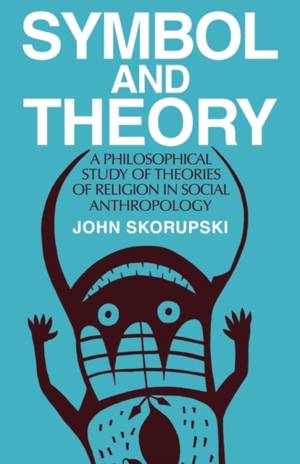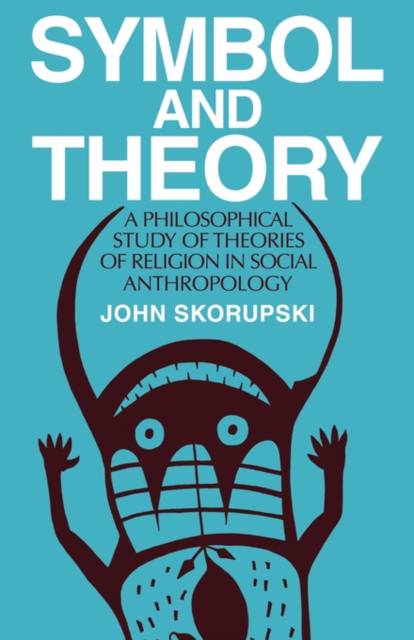
Bedankt voor het vertrouwen het afgelopen jaar! Om jou te bedanken bieden we GRATIS verzending (in België) aan op alles gedurende de hele maand januari.
- Afhalen na 1 uur in een winkel met voorraad
- In januari gratis thuislevering in België
- Ruim aanbod met 7 miljoen producten
Bedankt voor het vertrouwen het afgelopen jaar! Om jou te bedanken bieden we GRATIS verzending (in België) aan op alles gedurende de hele maand januari.
- Afhalen na 1 uur in een winkel met voorraad
- In januari gratis thuislevering in België
- Ruim aanbod met 7 miljoen producten
Zoeken
Symbol and Theory
A Philosophical Study of Theories of Religion in Social Anthropology
Skorupski, John Skorupski
Paperback | Engels
€ 64,95
+ 129 punten
Omschrijving
Anthropologists have always been concerned with the difference between traditional (or 'primitive') and scientific modes of thought and with the relationships between magic, religion and science. John Skorupski distinguishes two broadly opposed approaches to these problems: the 'intellectualist' regards primitive systems of thought and actions as cosmologies, comparable to scientific theory, which emerge and persist as attempts to control the natural world; the 'symbolist' regards them as essentially representative or expressive of the pattern of social relations in the culture in which they exist. Dr Skorupski considers in particular the notions of ritual, ceremony and symbol. He shows how their understanding involves and suggests more general philosophical problems of relativism, interpretation, translation, and the connections between belief and action. These are difficult and important problems and require an unusual combination of imagination and interdisciplinary exercise. This book is intended especially for philosophers, social anthropologists, social theorists and students of comparative religion.
Specificaties
Betrokkenen
- Auteur(s):
- Uitgeverij:
Inhoud
- Aantal bladzijden:
- 284
- Taal:
- Engels
Eigenschappen
- Productcode (EAN):
- 9780521272520
- Verschijningsdatum:
- 3/03/1983
- Uitvoering:
- Paperback
- Formaat:
- Trade paperback (VS)
- Afmetingen:
- 140 mm x 216 mm
- Gewicht:
- 362 g

Alleen bij Standaard Boekhandel
+ 129 punten op je klantenkaart van Standaard Boekhandel
Beoordelingen
We publiceren alleen reviews die voldoen aan de voorwaarden voor reviews. Bekijk onze voorwaarden voor reviews.









